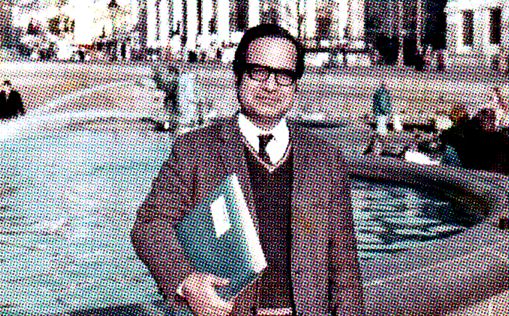By: Huma Mir (The writer is an educationist)
Professor Waris Mir was a man of unyielding principles. In the bustling city of Lahore, where tradition often clashed with modernity, he stood tall as a long lasting beacon of truth and resilience. His roles as a writer, teacher, and journalist were not mere titles but avenues through which he fought against the tide of oppression that sought to silence voices like his.
As a writer, Professor Mir’s pen was his sword. His articles and research papers, filled with sharp wit and profound insights, challenged the status quo and called for justice. He wrote about the marginalized, the forgotten, and the oppressed, bringing their stories to light in a society that often preferred shadows. His words were a lifeline to many, a source of inspiration and hope.
In the classroom, he was more than a teacher. He was a mentor, a guide who encouraged his students to think critically and question authority. He fostered an environment where free thought was not just allowed but celebrated. Many of his students and followers, inspired by his courage, went on to become voices of change in their own right. For instance, his bold articles and speeches against the authoritarian regimes of his time sparked critical debates and discussions among the public and within academic circles. These debates often led to greater awareness and resistance against oppressive policies.
Additionally, Professor Mir’s efforts played a role in fostering a culture of critical thinking and courage among his students and readers, many of whom went on to become prominent voices in advocating for human rights and justice in Pakistan. However, this dedication came with its challenges. Dictator administers and government officials, wary of his influence, often tried to undermine his efforts. He faced threats, censorship, and even prejudices, but his determination never wavered.
Journalism, for Professor Mir, was the most hazardous battleground. He exposed corruption, human rights violations, and governmental misconducts through his investigative pieces of writing. Each article was a risk, a step further into the crosshairs of those in power. During this period, the government imposed strict censorship and severe restrictions on the press. Journalists faced intimidation, imprisonment, and even physical harm for voicing dissenting opinions or exposing the regime’s injustices. His fearless criticism of the military dictatorship during General Zia-ul-Haq’s regime in Pakistan made him a symbol of confrontation against authoritarian forces.
One particularly revealing speech on dictatorial government led to a coward attempt on his family and profession. Yet, even if he was not physically stable after the stabbing shock, he dictated his next article to his younger son Amir Mir (now a rewound journalist), refusing to let fear dictate his actions. Despite these jeopardies, Professor Mir continued to write and speak out against the regime’s oppressive policies. He published numerous articles that highlighted human rights abuses, the suppression of democratic values, and the need for freedom of expression. His daring journalism made him a target for the establishments, who viewed his work as a threat to their control.
Professor Mir’s persistence in the face of such peril demonstrates the hazardous nature of his chosen profession. His willingness to risk his safety for the sake of truth and justice underscores the profound challenges and dangers he faced as a journalist. His dedication to exposing the truth, despite the personal risks, solidifies his legacy as a fearless and principled figure in the fight for journalistic freedom and integrity.
The weight of his battles often took a toll on him. During his last days, constant threats from rivals and the burden of being a voice for so many weighed heavily on his shoulders. Yet, he found solace in the unwavering support of his family and close friends. His wife, a quiet but formidable force as life partner, stood by him, providing strength in his weakest moments. His children, inspired by his bravery, carried forward his legacy of resilience and integrity till today.
Professor Mir’s struggles were not in vain. He became an unveiling symbol of resistance, a testament to the power of words and the human spirit’s capacity for endurance. Through his unwavering commitment to truth and justice, Professor Mir kindled a movement that encouraged others to continue the fight for a more just and free society, ensuring that his struggles had a lasting and meaningful impact.
In his final reflections, Professor Waris Mir knew that the fight against oppression was ongoing. Despite this, he found peace in knowing that his efforts had sown seeds of change. His legacy lives on through those who have been touched by his courage and determination, ensuring that his contributions to journalism and human rights advocacy remain a guiding light for future generations.










